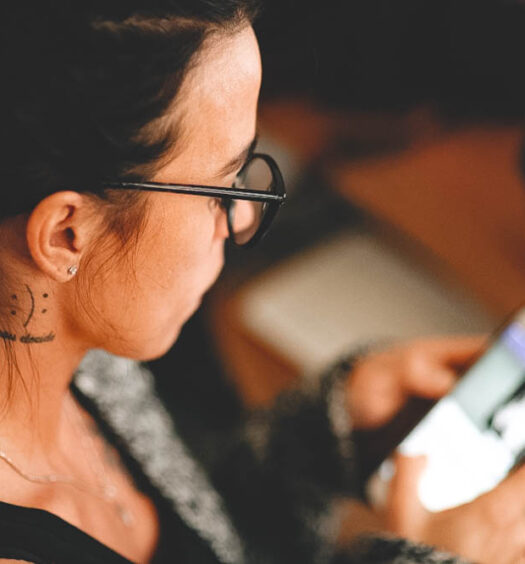Artificial Intelligence And The Age Of Empathy

Photo: Pexels
Lately, AI has been the source of various articles and discussions. A new frontier, a new era, and a new industrial revolution have been dawning. Google’s chairman Eric Schmidt calls this fourth industrial revolution: “the age of intelligence.”
Accelerating trends in artificial intelligence point to a significant economic disruption in the coming years. As we speak, engineers and developers are crafting the services and robots of tomorrow.
Our products and services as we know them today are bound to change fundamentally: driverless cars, software that could predict what people want to purchase, virtual assistants, administrative and care staff, augmented reality, speech recognition services, education, banking, travel, and entertainment. Everything is about to become smarter but can we also expect things to become more empathic? Can we aim for the age of emotional intelligence?
Perhaps machines and robots can succeed where we are failing. Let’s face it; our society is also gearing towards more narcissistic, less caring, acutely individualistic tendencies. According to recent studies, we are in the middle of a “narcissism epidemic”*.
Data suggests that narcissistic personality traits have risen as much as obesity in the western world. An army of selfie lovers, loudly expressing their wants and demanding to satisfy an increasing list of needs, needs that were nonexistent a decade ago.
I believe the greatest challenge of this fourth industrial revolution will be to marry human emotional intelligence to machine intelligence.
Empathy is the ability to put ourselves in someone else’s shoes. Mimetic theory and the recent discovery of mirror neurons helps us better understand empathy as a natural process, but there are positive and negative aspects to it. In the same way, we can imitate a smile; we can imitate a frown and expressions of anger. It has been demonstrated that in the human brain, the neural circuits underpinning action execution directly map its perception when executed by others.
In fact, the brain is wired to mimic what we see, when someone is yawning for example. This gives a new meaning to the “you are what you eat” adage, you also are what you read, see and choose to absorb. It seems the more acts of kindness we are exposed to or manage to intercept (in the incessant flow of information we get), the more inclined we are to reflect and mimic these very acts. Kindness and thoughtfulness tend to inspire and are hopefully duplicated.
WHo CAREs was built on this notion. We only feature and speak of great caring corporate or community practices; we bring light to these practices in hopes to have them duplicated.
To build empathy, you need social bonds. Without social bonds, we simply cannot have an empathic society. It takes simple acts of kindness, promoting values such as respect; responsibility; fairness; caring and citizenship. It also requires the wisdom to draw a healthy distance from that tiny screen that often doubles as a mirror.
In the words of – Albert Einstein “Empathy is patiently and sincerely seeing the world through the other person’s eyes. It is not learned in school; it is cultivated over a lifetime.”
So how do we cultivate empathy, how do we make sure that empathy is enhanced in our society and also in the development process of these new products and services?
If today’s software engineers are creating the A.I. consciousness of tomorrow, you would want it to have the capacity for intelligent, emotional interactions and relationships. It doesn’t seem unreasonable that a machine would have an acute emotional component. Our society could not survive if our empathic abilities: goodwill, humanity, and altruism were removed from our human experience, so why should we remove these abilities from a machine?
To integrate and enhance our life experiences with technology we must create, develop, think or most likely “feel” this new revolution from an emotional point of view. These conscious items, robots, entities will be crafting or recoding our relationships to medicine (artificial limbs and organs) but also means of transportation and communications technology, especially the internet.
Our interactions will change yet again; the internet will keep on evolving towards the truest definition of itself, a world wide web. What will be the role of A.I. in this new era; will it manage to marry innovation and progress?
Take Siri for example; if you ask her a question on diabetes, her response is “here is what I found on diabetes…” she provides facts. Could a more empathic Siri provide a different answer? Could she be prompted to respond in a more caring way?
Will A.I. and its development forge an even deeper gap between countries who have access to technology and those who don’t or will it help bridge the gap amongst us?
What direction will we collectively choose? We are at a crossroads, an extremely important crossroads, one that will significantly transform our human experience. As of yet, there are no regulations or limits on what “we” can create, A.I. is still a huge open unlimited playground for engineers and developers. We have now entered an era of unprecedented capacities. Other than the abilities of A.I.; we should address our new-found abilities and the responsibilities that come with them. We are now, all-seeing, potent super-humans creating beings in our own image. This great new revolution comes with a great challenge, the responsibility to re-assess our needs, the needs of our planet, the responsibility to look at our track record in groundbreaking technology.
In 1905, Einstein a self-professed pacifist made the groundbreaking discovery that a large amount of energy could be released from a small amount of matter. He expressed this with the equation, E=mc2 (energy = mass times the speed of light squared). Sadly, the atomic bomb would later illustrate this principle. But bombs were not what Einstein had in mind when he published this equation.
How can we use A.I. as a groundbreaking human progress to curate the best industrial revolution to date? How can we make these new creations the best reflection of our core empathic selves? Birthing machines and robots that make our world better, more diverse, cleaner, smarter, more sustainable, safer, more altruistic and emotionally intelligent, more empathic. Developers and consumers alike need to be curious about the relationship they wish to have with A.I.
Aldous Huxley, the author of a Brand New World, was quoted as saying that “Maybe this world is another planet’s hell.” In times of change, our greatest opportunity is to redefine ourselves. Our left brain approach to development and innovation has led to incredible advancement, but it has also led to incredible disasters, weapons of massive destruction and tools created to divide and isolate. The real talent today more than the skill of coding is to crack the code of empathy, the courage to assess creations through emotion, goodwill and benevolence. This may be our greatest test yet. Will robots change our planet, our world? I sure hope that they do. I also hope that we create them akin to the best version of ourselves.
WHO CARES!? provides empathy enhancement workshops for research centers, incubators, schools and the corporate world. To learn more visit: www.whocareschronicles.com
*Dr. Twenge has outlined this data in two books, first in 2006 with Generation Me and again in 2010 with The Narcissism Epidemic: Living in the Age of Entitlement (co-authored by Dr. Keith Campbell).
FROM THE EDITOR
At Conscious, we are inspired by stories that empower us to think differently and think big-picture, and so we set out to tell stories with the help of leaders within the social good community. You can read more stories like this when you join as a member.



